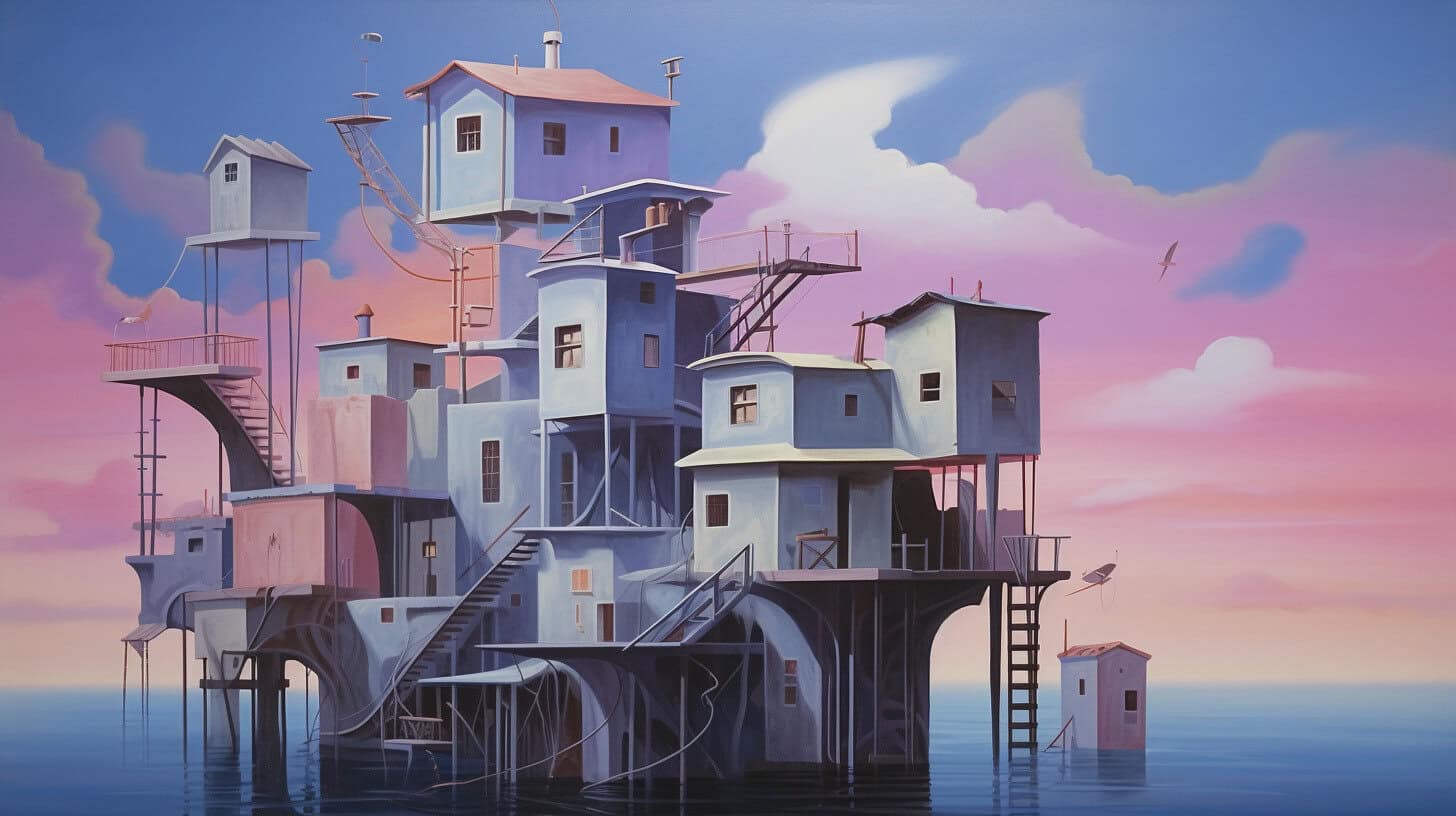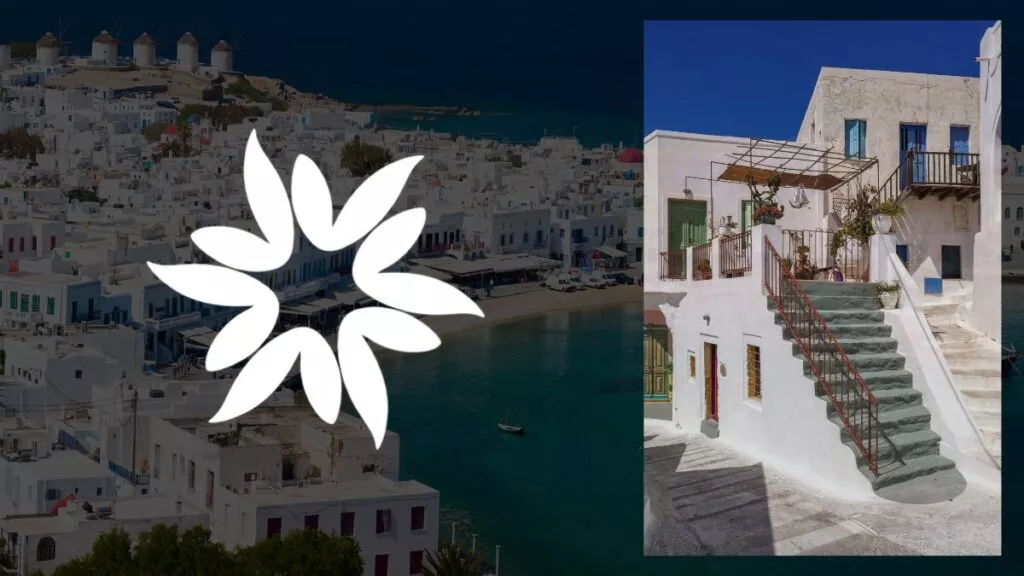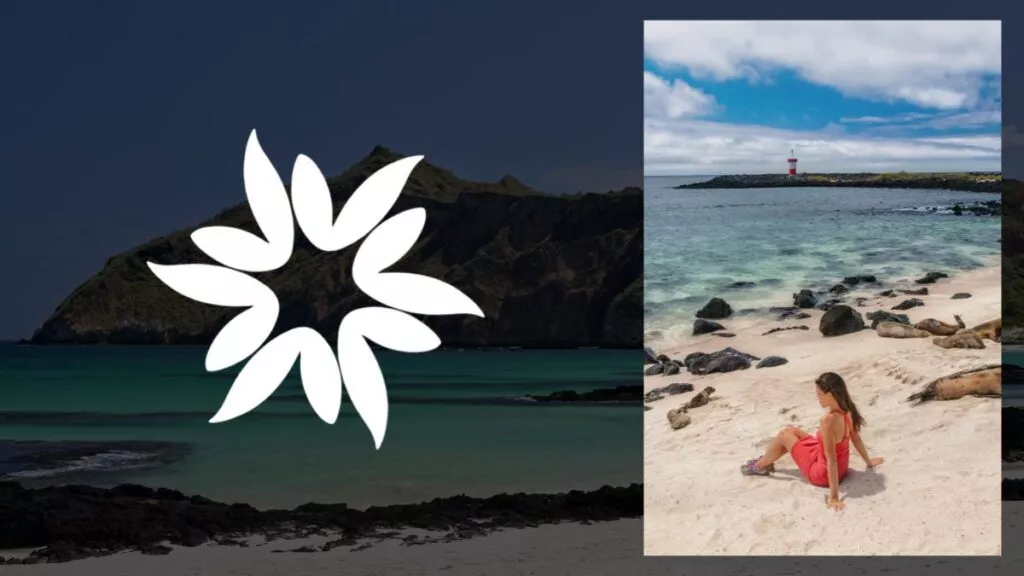Dive into the world of floating architecture, a solution born out of necessity to combat climate change and rising sea levels, transforming urban landscapes worldwide.
Key Takeaways
- The rising sea levels demand innovative architectural solutions, with floating cities becoming a tangible response.
- Architects like Kunlé Adeyemi are pioneering projects, including the Makoko Floating System, that can be assembled rapidly and adapted to various environments.
- Existing projects in cities like Rotterdam are demonstrating the practicality and viability of floating architecture as a response to climate change.
The Rising Tide of Floating Architecture: An Existing Solution, Not a Futuristic Dream
As the climate crisis continues to escalate, we’re faced with certain hard truths. One of them is the continuous rise of sea levels, which poses a significant threat to millions of people inhabiting coastal zones across the globe. According to estimates, U.S. coastlines could see a rise of 10 to 12 inches by 2050. The UN Secretary-General has raised alarm bells, warning that whole communities and even countries might vanish in the forthcoming decades.
Floating Architecture: Responding to Climate Change
When faced with such monumental challenges, humanity has always found ways to innovate and adapt. As coastal communities have experienced catastrophic flooding, architects worldwide are reimagining future living scenarios where we cohabit with water, rather than merely fight it.
We’re witnessing a surge in proposals for whole “climate-resilient” floating cities. Ambitious designs range from ocean settlements in South Korea to projects envisioned to accommodate up to 20,000 people in the Maldives. However, existing floating architectural ventures in cities from Lagos to Rotterdam showcase the reality and scalability of life on water.
The Nieuwe Instituut in Rotterdam currently hosts an exhibition named “Water Cities Rotterdam,” displaying the groundbreaking work of NLÉ, an architecture firm spearheaded by Kunlé Adeyemi. The firm has devoted extensive research and trials to floating architecture worldwide, resulting in several floating pavilions that grace the museum’s ponds.
A central district of Lagos, Nigeria, Makoko, serves as an inspiration for NLÉ’s transformative work. Thousands of locals reside in makeshift wooden structures erected on stilts in the lagoon. It’s here that Adeyemi built a floating school for the local residents in 2012.
Reflecting on a massive flood that hit Lagos in 2011, Adeyemi shared, “Entire streets were inundated, and I saw that cities would flood, but Makoko’s people were already adapting. It was a revelatory moment.”
The Makoko Floating School, a triangular A-frame wooden structure, served not only as an educational facility but also as a communal space for local children. Instead of standing on stilts, it floated on a plastic barrel base, setting a precedent for future projects.
Dive into the world of floating architecture, a solution born out of necessity to combat climate change and rising sea levels, transforming urban landscapes worldwide.

Transformative Solutions for Water-based Living
Learning from the floating school’s success and continued research, Adeyemi and his team developed the Makoko Floating System (MFS), a series of sustainable timber structures that can be quickly assembled and disassembled as required. The system, designed to meet European building codes, is modular and features more efficient steel connections.
The floating structures in the MFS can be assembled by a team of five in just two weeks, without needing heavy machinery or cranes. The system caters to a range of needs, offering small, medium, and large versions of the triangular A-frame structure. “Our goal is to provide an inclusive solution for this phase of climate adaptation, ensuring that the most vulnerable communities are not left behind,” Adeyemi commented.
The MFS system has been used in countries including Italy, Belgium, and China, adapting to different water and climate conditions. In 2021, it found a semi-permanent home in Mindelo, a port city in Cape Verde, where it houses a floating “music hub.”
Adapting to a Watery Future
Rotterdam, a city where 90% of the land is below sea level, is no stranger to floating architecture. The city hosts numerous design firms grappling with the rising water challenge, with projects such as Nassauhaven offering future-proof housing solutions on the water.
The city’s CEO, Pieter Figdor, emphasized, “We are a delta city, and water levels are changing.” His firm, Public Domain Architects (PDA), is behind Nassauhaven, a “floating street” with 17 floating homes, a winner of the city government’s competition for a floating architecture pilot project.
The future of architecture is already floating among us, with visionaries like Adeyemi and Figdor leading the way. Adeyemi concluded, “In the near future, human civilization will live more on water. Why fight water when we can learn to live with it?”








